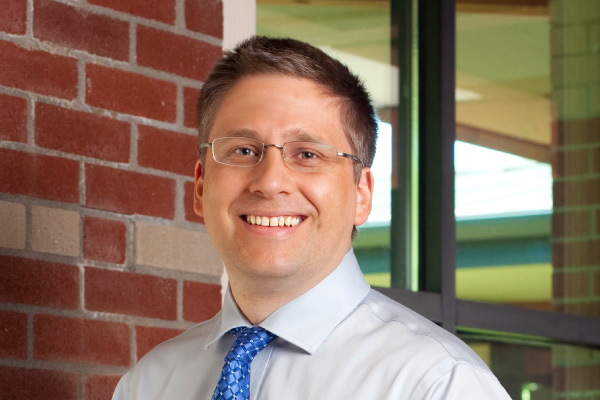To treat cancer successfully, it takes a highly qualified team of providers focused on the needs of the patient.
“Cancer care and cancer cure doesn’t come from just one doctor,” says Willamette Valley Cancer Institute radiation oncologist Dr. Thomas Sroka. “It comes from many groups and specialties working together.”
That teamwork happens within WVCI’s clinics, and on a larger scale through the Oregon Cancer Alliance (OCA). WVCI is one of 11 oncology specialty groups in Lane County that work together to coordinate care, so that patients get the best treatment possible in a timely manner.
Specialty teams
Physicians involved in the OCA work in teams, collaborating on individual cases.
“Patients want to know what’s going on. They want to understand ‘What are we doing?’ ‘Why are we doing it?’ ‘And how is this whole process going to go?'” says Dr. Donald Garbett, an interventional radiologist with Radiology Associates, P.C. and a member of the OCA’s G.I. team.
Members of the G.I. team work together on behalf of patients with gastrointestinal cancers, which are cancers of the digestive system—the esophagus, gallbladder, liver, pancreas, stomach, small intestine, bowel (large intestine or colon and rectum) and anus. The G.I. team brings together gastroenterologists, radiation and medical oncologists, surgeons, radiologists, interventional radiologists and pathologists. Twice a month, they gather at what’s called a tumor board, to discuss specific cases and the best path of treatment.
“The case is presented, we review radiology, we review the pathology, and then amongst everyone, we discuss what has happened and what should happen next,” says Dr. Duc Vo, a colorectal surgeon with Northwest Surgical Specialists.
“So you don’t have just one set of eyes, you have 10, 15, 20-plus sets of eyes looking at that individual’s case,” says Dr. Jonathan Gonenne with Eugene Gastroenterology Consultants.
“They’re all talking to each other and comparing notes and asking questions. And that’s how good medicine happens,” says Dr. Denis McCarthy, a pathologist with Pathology Consultants, PC.
Guiding patients through the oncology maze
In addition to collaboration between physicians, the Oregon Cancer Alliance connects patients with navigators, helping them set up their appointments and guiding them through the treatment process.
“My role as a patient navigator, and our role as patient navigators in our community, is to take some of that worry and stress away from our patients,” says patient navigator Andrea Wolf. “We’re here to help coordinate, so it’s seamless for the patient.”
“We can ensure that appointments are made on a timely basis, that patients get from point A to point B, so that we don’t lose time,” says WVCI medical oncologist Dr. Marc Uemura. “Our No. 1 goal in all of this is to improve our patients’ outcomes.”
The OCA has plans to expand its care teams and add a lung cancer team, as well as a team to care for patients with gynecologic cancers.



